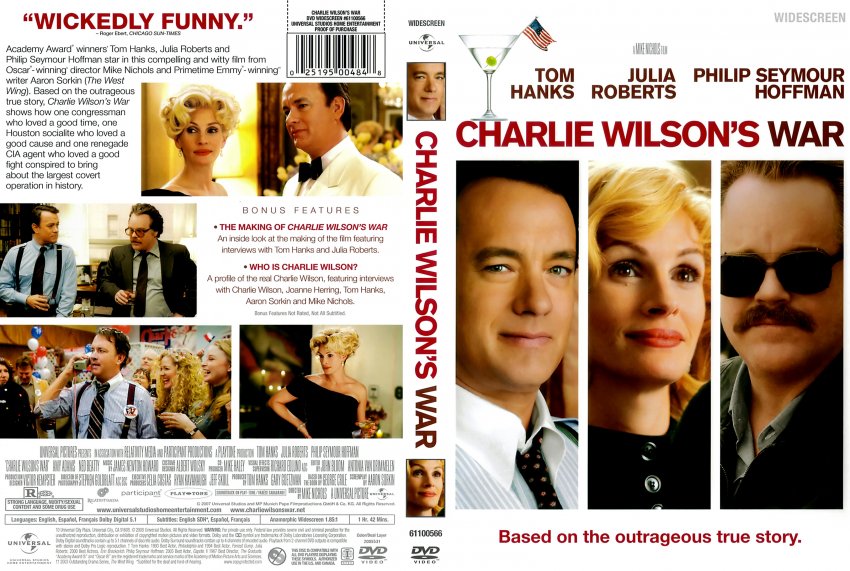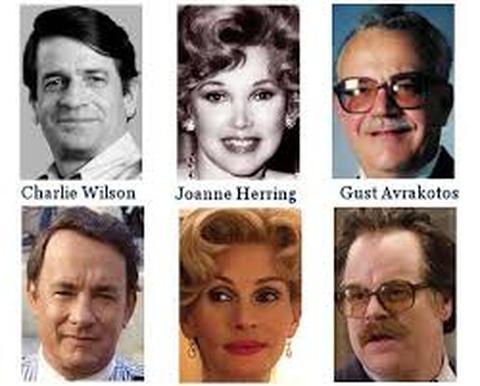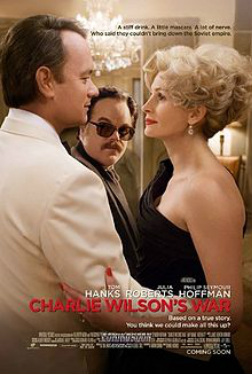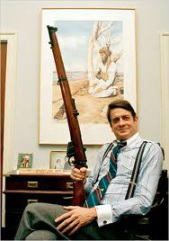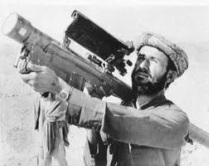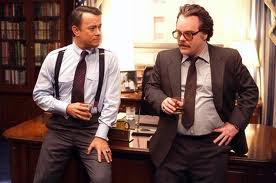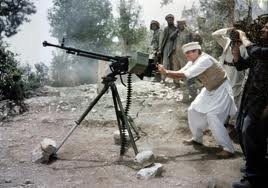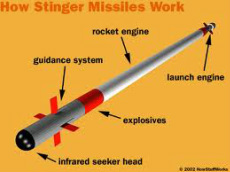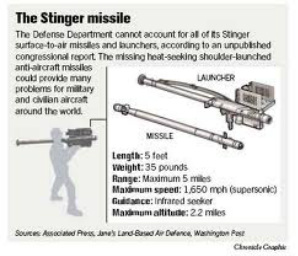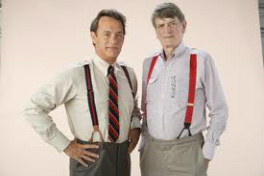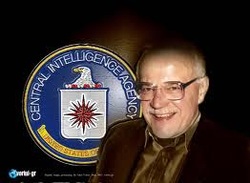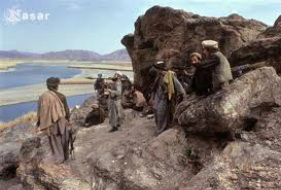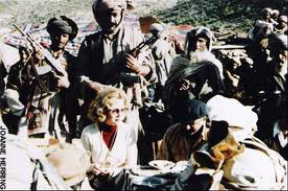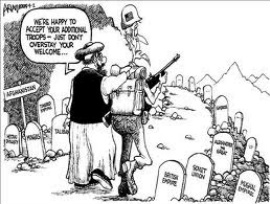Charlie Wilson's War (Dir: Mike Nichols)
A comedy about Afghanistan, the C.I.A., a corrupt Congressman, the Mujahideen and Stinger missiles
"Based on a true story. You think we could make this up?": the movie's opening statement
The Key Players
The Background: the Soviet invasion of Afghanistan and the Mujahideen resistance
The Russian Invasion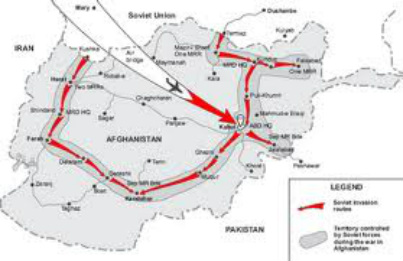
In 1979 Soviet forces invaded Afghanistan. Within ten years they were forced to retreat in ignominy, defeated by tribesmen whose lifestyle was almost medieval in its poverty, inequity and illiteracy.
Most accounts of the Soviet invasion pay little attention to the reasons that motivated the Soviet political and military leadership to move into one of the bleakest and most poverty-stricken countries in the world. At heart the invasion a late twentieth century replay of "the great game" - the ongoing attempts of big powers to dominate a strategically crucial area.It also represented the final stage of the Cold War, in which the Soviet Union and the USA, with its allies, struggled for strategic supremacy. 1978 and beyond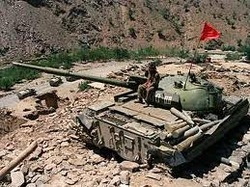 Soviet tank guards a strategic route.
From the early 1950s,after the US established military links with Pakistan and financial ties with the Gulf oil states, Afghanistan relied increasingly on Russian support as a counterpoise. Russia supported the Afghanistan Communist Party, which became increasingly influential and aimed to overthrow the antiquated Afghan monarchy. This goal was achieved in 1978 when it carried out a coup. But within months civil war broke out in response to the new communist government's radical policies of secularization and modernization.By the end of 1978 the Russians had installed a puppet regime which signed a Friendship treaty. Under its terms one year later the Soviet Union moved armed forces into Afghanistan and installed a new regime, intending the country to become the advance post of Soviet presence in central Asia. However, the Russian leadership had not counted on the antagonism that this aroused in the nation, especially amongst conservative religious elements.
|
The Mujahideen tackle the Soviets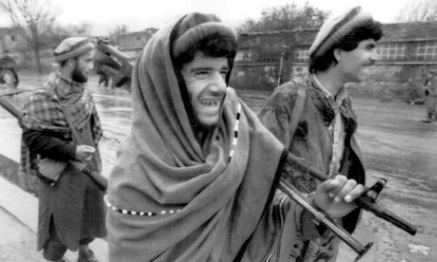
The Soviet forces in Afghanistan and their puppet regime met immediate local resistance. This was a conservative, tribal, religious nation with strong local traditions. It was also a nation that had for millennia successfully resisted attempts by better equipped foreigners -including Alexander's Macedonians and Greeks, and the the British - to impose their rule on the Afghan tribes. Its inhabitants largely viewed with horror the centralizing, socialist and secularist policies of the new rulers. 'Mujahideen' is plural for 'Mujad', which means a person who strives or fights on behalf of Islam. It is based on the term 'jihad', to strive or to struggle. The term originally referred to those guerrilla warriors who fought against the Soviets and their imposed Kabul government 1979-89. Mujahideen tactics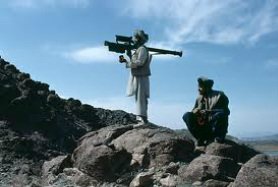 Mujahideen with stinger missiles.
Although intensely local, the Mujahideen made good use of military and financial aid supplied by overseas nations anxious to stop Soviet expansion in the area. These nations included the USA, Pakistan, China and Iran. The Pakistan Inter-Services Intelligence (ISI) played a crucial role in distributing this largesse, essentially doling it out to Islamist factions who then channeled it to mujahideen.
Mujahideen had many advantages. They had a warrior tradition, great knowledge of their local terrain, and were clever, resourceful and courageous.They also gained from having the support, occassionally coerced, of the local population. Mujahideen also showed a willingness to adapt tactics and techniques to fight mechanized opponents. They were also skilled at night fighting, preparing ambushes and using mines. However, they were careless of discipline,susceptible to looting and left for home when local and family needs required. Above all, mujahideen were vulnerable to Soviet air power, especially in the form of heliborne attacks that used helicopter gunships and ground attack aircraft. |
Charlie Wilson's War: the Congressman, the Socialite and the CIA Agent
|
Joanne Herring was sometimes described as a cross between Dolly Parton and Scarlett O'Hara. Brash, forceful, blunt, cosmetically enhanced, Julia Robert's portrayal of her is in fact restrained. Herring was a very right-wing, three-times married Texan business-woman who combined Christianity with high society hostessing and philanthropy. In 1980 she went to Afghanistan to document Russian tactics against Afghan villagers, surviving a Russian helicopter attack. The film footage shot by her team helped persuade Charlie Wilson and others in Congress to support the Mujahideen. She also bankrolled supplies of weapons ands equipment to the rebels.
|
Charlie Wilson's War depicts its subject as a somewhat corrupt Congressman from Texas who enjoyed cocaine, women, hard liquor and hot tubs. The movie accurately depicts all this, and it is also true in showing how Wilson, accompanied by beautiful young women, wined, dined and bribed foreign politicians and diplomats, at US taxpayers' expense.
Although Wilson was a negligible presence on the floor of the House of Representatives,his political shrewdness showed itself in his role on the House's military appropriations sub-committee. From there he cajoled or induced other members to fund the CIA in order to secretly send billions of dollars to arm the Mujahideen. Wilson ensured that those who approved the deal were rewarded with lavish appropriations for military bases in their districts. This was illegal, of course, as was the CIA's secret war and the funding that financed it. |
Gust Avrokostos, nicknamed 'Dr Dirty', was the CIA officer that organization placed in charge of distributing the funding for the Mujahideen -the biggest covert operation in the CIA's history. Arrogant and overbearing, this son of Greek immigrants found his working-class background was not appreciated by the blood-blood CIA establishment.However, he worked his way up to become an expert on Afghanistan in the early 1980s.
Avrokostos was a master of detail and deceit. He worked with Wilson to arrange the secret financing, helped blackmail a couple of key Congressmen, and then organized the conversion of that funding into the purchase and shipment of weapons and other war material. He even supplied the Mujahideen with mules -from Tennessee. |
|
|
|
Charlie Wilson's War - How Accurate?
Although the essential features of the movie may appear to be Hollywood exaggeration, they are overall an accurate depiction of the people and events involved, allowing for some compression of detail.The flamboyant personalities of Wilson, Herring and Avrokotos are if anything, toned down. Even the most unlikely scenes, such as the belly dance sequence with the Egyptian defense minister, and the blatant and proud evasion of the law and outright lies involved in securing funds and weapons, are verifiable.And the movie is correct in highlighting the essential roles played by the trio in arranging the finance, supply and distribution of funds and weapons to the Mujahideen.There is one contentious issue. Charlie Wilson's War insists that the supply of stinger-type missiles to the Mujahideen was the vital event that changed the course of the Afghan-Soviet war. This view remains generally accepted almost a quarter-century later. However, some military historians disagree. They argue that (a) the missiles' effectiveness has been greatly exaggerated; (b) Soviet helicopters were not as susceptible to their effects as has been supposed; (c) other weapons and tactics e.g. ambushes, mining, were very effective against Soviet forces and (d) that the Soviet government had decided on a course of withdrawal before Stinger missiles were supplied in quantity to the Mujahideen. See for example C.J. Dick, "Mujahideen tactics in the Soviet-Afghan War" and Leonard Leshuk's paper "Stinger Missiles in Afghanistan".
